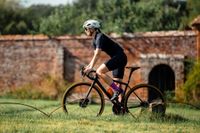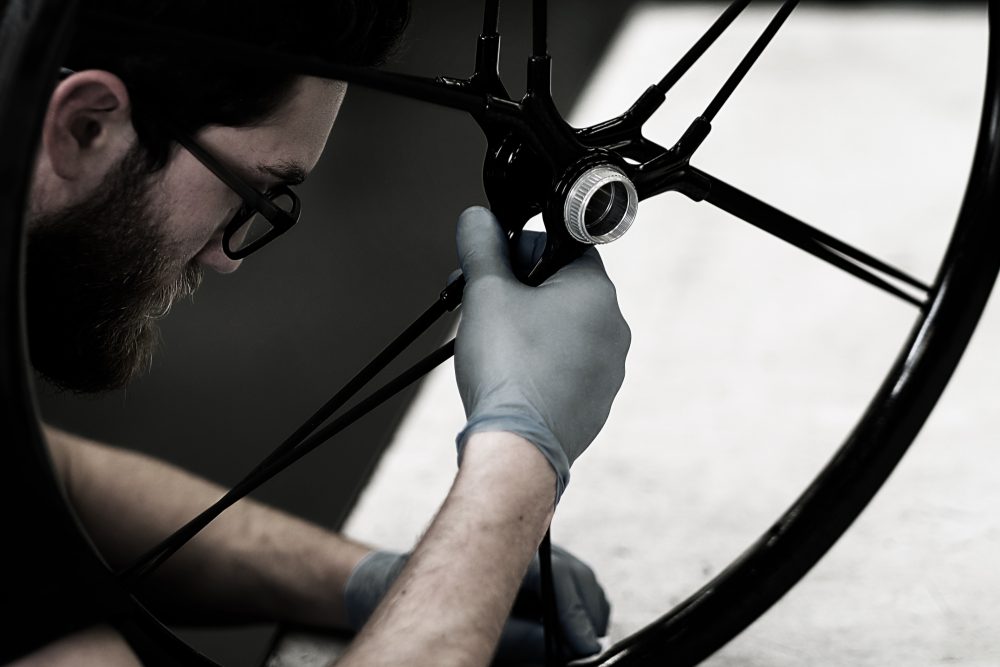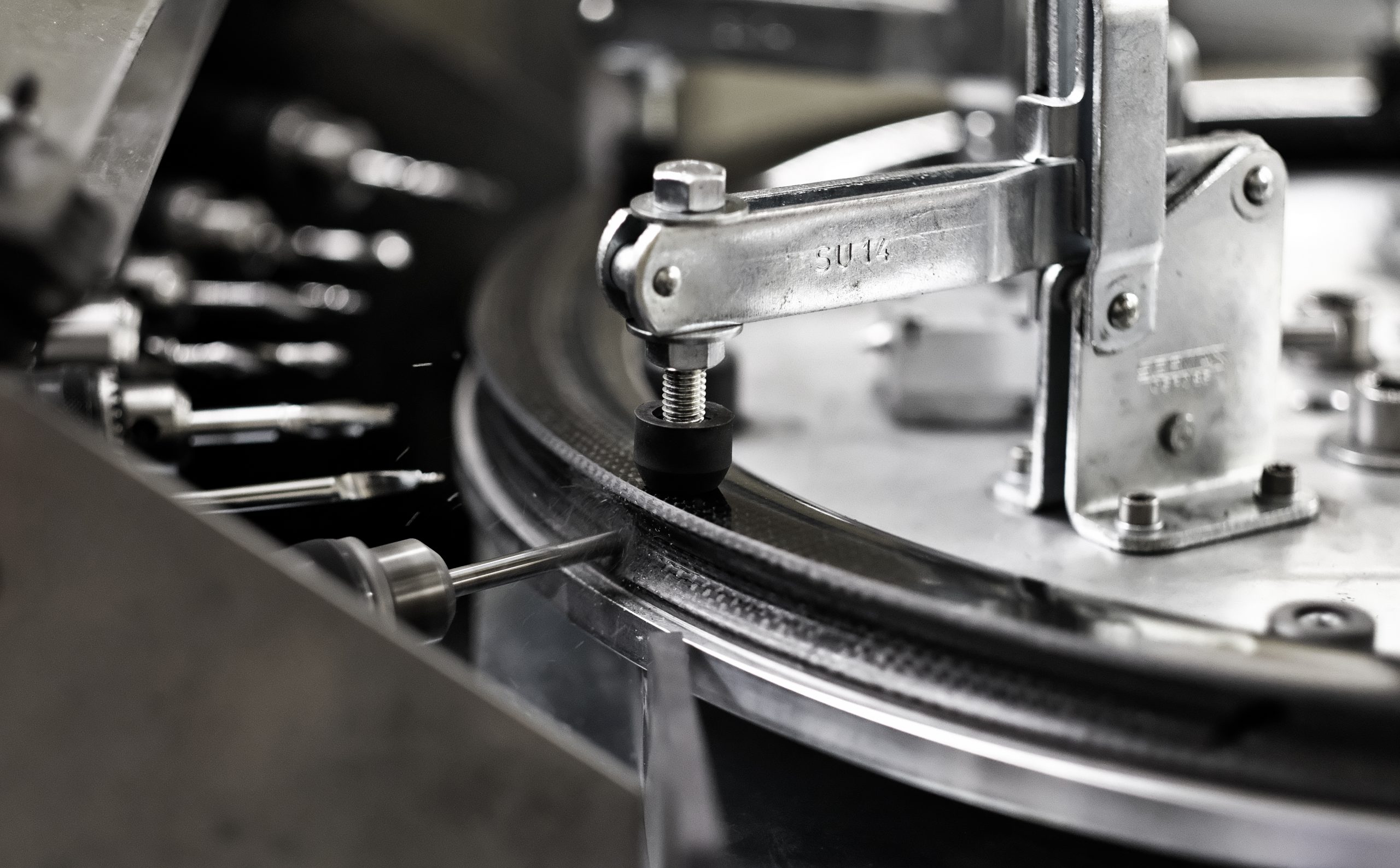Corima brings 12-spoke MCC design into the disc age
The French brand has launched an disc brake version of its carbon spoked MCC wheel


The latest race content, interviews, features, reviews and expert buying guides, direct to your inbox!
You are now subscribed
Your newsletter sign-up was successful
Corima has released a disc brake version of its MCC wheel - the full carbon design that first rolled out if its factory in France back in 2010.
The new hoops feature the same design ethos - with the rim, spokes and hub all constructed from carbon. The disc model was three years in the making, and boast just 12 carbon spokes each at the front and rear, hitting the scales at 1295g for a set of the 32mm deep rims.
The wheels are also available with a 47mm rim, coming in at 1,340g. Both options come with an internal diameter of 26mm, and can be purchased for a tubular or tubeless ready set-up - the latter coming with rim tape and valve.
All of Corima's wheels are moulded by hand at the Loriol Sur Drome workshop in France, and Corima calls these hoops the "perfect disc brake wheelset to cover all aspects of racing, from lightweight and superior stiffness for climbing to optimising aerodynamics and control for fast descends and flat road."

As well as now offering its lightest production wheel in a disc brake iteration, French brand has redesigned the shape of the rim, dropping the drag - compared to 2019 models - by a reported 9 per cent at the front and 18 per cent at the rear.
The 12 carbon spokes are distributed in pairs, which Corima say reduces the effect of crosswinds and six anchor points inside the rim distribute the weight and provide a low rotational inertia which reportedly leads to fast accelerations and performance on the climbs.
As per all Corima wheels, the stiffness to weight ration has been bolstered by filling the rim with a structural foam and a horizontalUD carbon fibre. This 'Torsion Box' concept, patented by Corima in the 90s, aims to guard against flex without adding additional grams.
The latest race content, interviews, features, reviews and expert buying guides, direct to your inbox!
At the rear wheel, 'Double Torque Technology (D2T)' has been applied, via a y-shaped carbon configuration where two spikes are joined to distribute the forces and ensure the carbon hubs can cope with torque being applied both when pedalling and braking.
Commenting on the launch, Corima's CEO Pierre Jean Martin said: "We are proud to launch the brand new MCC DX full carbon disc brakewheelset range, which utilises the best of Corima’s cutting edge carbon wheelset design expertise and technology, and merges it into the ultimate performance disc brake wheelsets."
He added: "Corima has always been at the forefrontof carbon wheelset design since we entered the bike industry in 1988. With our own unique patents and design philosophies, we are constantly innovating and improving our wheelsets to stay one-step ahead and to always offer you increased performance you can trust."
Prices? Of course, not cheap - and as follows:
- 32mm Tubular - £2896
- 47mm Tubular - £2984
- 32mm TLR - £3204
- 47mm TLR - £3292
Michelle Arthurs-Brennan the Editor of Cycling Weekly website. An NCTJ qualified traditional journalist by trade, Michelle began her career working for local newspapers. She's worked within the cycling industry since 2012, and joined the Cycling Weekly team in 2017, having previously been Editor at Total Women's Cycling. Prior to welcoming her first daughter in 2022, Michelle raced on the road, track, and in time trials, and still rides as much as she can - albeit a fair proportion indoors, for now.
Michelle is on maternity leave from April 2025 until spring 2026.
